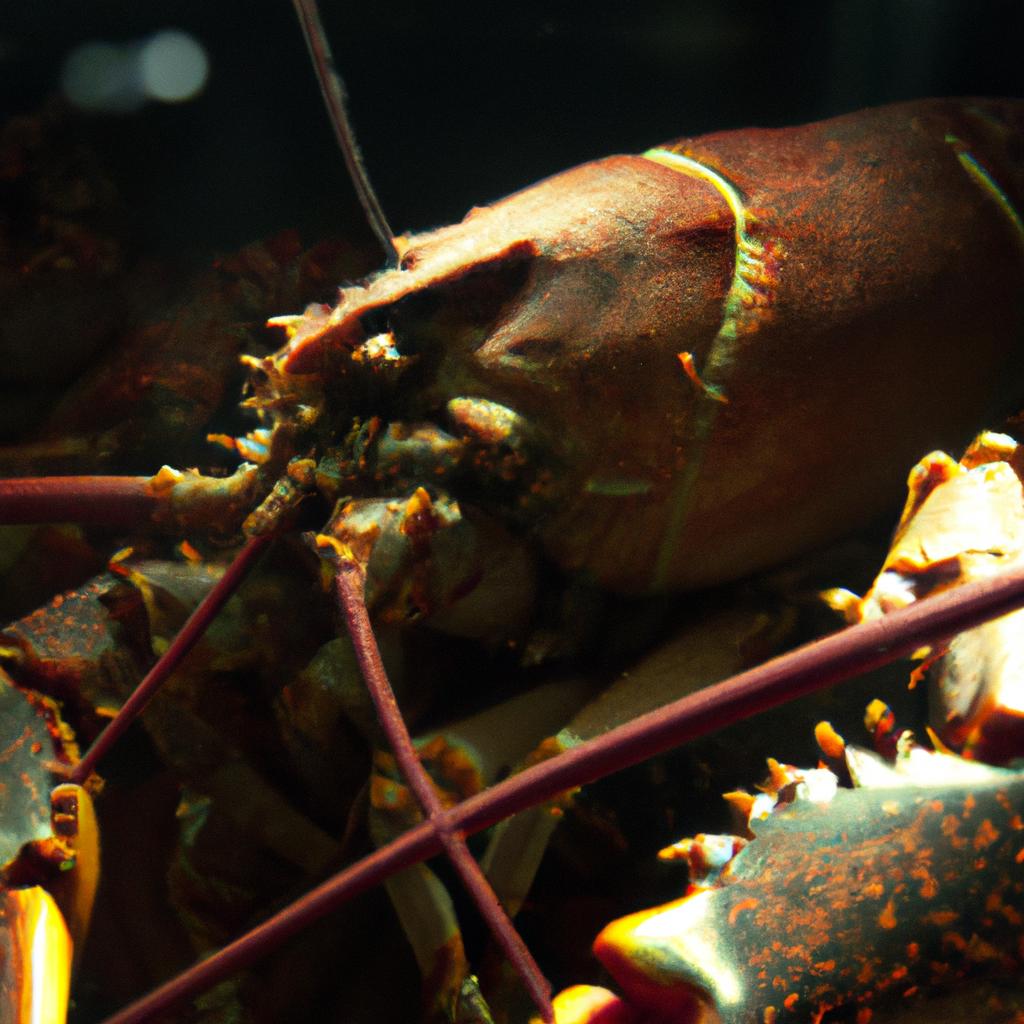Yes, lobsters do eat algae. Although they are primarily carnivorous and prefer to consume fish, mollusks, and other crustaceans, they have been known to eat algae and other plant material when food is scarce. In this blog post, I will share my personal experience and perspective on the dietary habits of lobsters, discussing how these fascinating creatures are opportunistic feeders that will consume a wide variety of food sources, including algae.
The Fascinating World of Lobsters
As a biologist who has spent countless hours studying and observing marine life, I find lobsters to be some of the most fascinating creatures in the ocean. Their unique biology and behavior make them an interesting subject to study, and their dietary habits are no exception. Lobsters are highly adaptable creatures, and this adaptability extends to their diet.
Lobsters: Opportunity Feeders
Lobsters are opportunistic feeders, meaning they will eat whatever is available to them. While they prefer a diet consisting of fish, mollusks, and other crustaceans, they will consume algae and other plant material when their preferred food sources are scarce. This adaptability helps lobsters thrive in a variety of environments and contributes to their success as a species.
Personal Observations of Lobster Feeding Habits
During my time as a marine biologist, I have observed lobsters exhibiting a wide range of feeding behaviors. In some cases, I have witnessed them actively hunting and consuming fish and other crustaceans. In other instances, I have seen them foraging along the ocean floor, picking at algae and other plant material. These observations have led me to believe that lobsters are highly adaptable feeders that will readily consume algae when necessary.
Algae as a Nutritional Source for Lobsters

While algae may not be a lobsters’ preferred food source, it can provide them with some nutritional benefits. Algae contains essential nutrients such as vitamins, minerals, and proteins that can support the health and growth of lobsters. In times of food scarcity, consuming algae can help lobsters survive and maintain their overall health.
The Role of Algae in the Lobster’s Ecosystem
Algae plays a crucial role in the marine ecosystem, serving as a food source for many marine species, including lobsters. By consuming algae, lobsters help to maintain a balanced ecosystem and contribute to the overall health of their environment. Additionally, algae can help to improve water quality by absorbing excess nutrients and producing oxygen.
The Effects of Climate Change on Lobster Diets
As climate change continues to impact marine ecosystems, the availability of food sources for lobsters may change. Rising ocean temperatures and increasing acidity levels can lead to a decrease in the abundance of fish and other crustaceans, forcing lobsters to rely more heavily on alternative food sources such as algae. This shift in diet could have significant implications for the health and survival of lobster populations.
The Impact of Lobster Fisheries on Lobster Diets
Lobster fisheries can also have an impact on the diets of wild lobsters. Fishing practices that remove large numbers of lobsters from their natural habitat can disrupt the balance of the marine ecosystem and affect the availability of food sources. In some cases, this may result in lobsters consuming more algae as they adapt to the changing conditions of their environment.
Conservation Efforts to Protect Lobster Populations
Given the importance of lobsters to the marine ecosystem and the potential threats they face from climate change and overfishing, conservation efforts are essential to protecting lobster populations. These efforts may include sustainable fishing practices, habitat restoration, and research into the dietary habits of lobsters to better understand how they can adapt to changing environmental conditions.
Conclusion: Lobsters and Algae Consumption
In conclusion, lobsters do eat algae, although it is not their preferred food source. As opportunistic feeders, lobsters will consume algae when other food sources are scarce or unavailable. This adaptability allows them to thrive in a variety of environments and contributes to their success as a species. Here are 10 facts about lobsters and their consumption of algae:
1. Lobsters are opportunistic feeders and will eat what is available to them.
2. They primarily consume fish, mollusks, and other crustaceans.
3. Algae can provide lobsters with essential nutrients such as vitamins, minerals, and proteins.
4. Consuming algae can help lobsters survive in times of food scarcity.
5. Lobsters contribute to a balanced marine ecosystem by eating algae.
6. Climate change may lead to a shift in lobster diets, causing them to rely more on algae as a food source.
7. Lobster fisheries can impact the availability of food sources, including algae, for wild lobsters.
8. Conservation efforts are essential to protecting lobster populations and their habitats.
9. Sustainable fishing practices and habitat restoration are important for maintaining healthy lobster populations.
10. Further research into the dietary habits of lobsters can help us better understand how they can adapt to changing environmental conditions.
FAQs
What is a lobster’s favorite food?
Lobsters are omnivores and will eat a variety of foods, but their favorite is typically clams or other shellfish.
What do lobsters eat seaweed?
Lobsters do eat seaweed, but it is not a significant part of their diet. They are primarily carnivorous and feed on other marine animals such as fish, crabs, clams, and mussels.
How often do lobsters have to eat?
Lobsters can go without food for several weeks, but they typically feed on small fish, crabs, clams, and other marine animals once every few days.
What does lobsters eat?
Lobsters are omnivores and their diet typically consists of small fish, crabs, clams, mussels, snails, and other small marine organisms.
Do lobsters eat seaweed?
Yes, lobsters do eat seaweed, along with other types of marine plants and algae. However, their diet primarily consists of small marine animals such as crabs, clams, and other crustaceans.
Why do lobsters eat seaweed?
Lobsters eat seaweed for its nutritional value, as it contains important vitamins and minerals that they need to survive and thrive.





